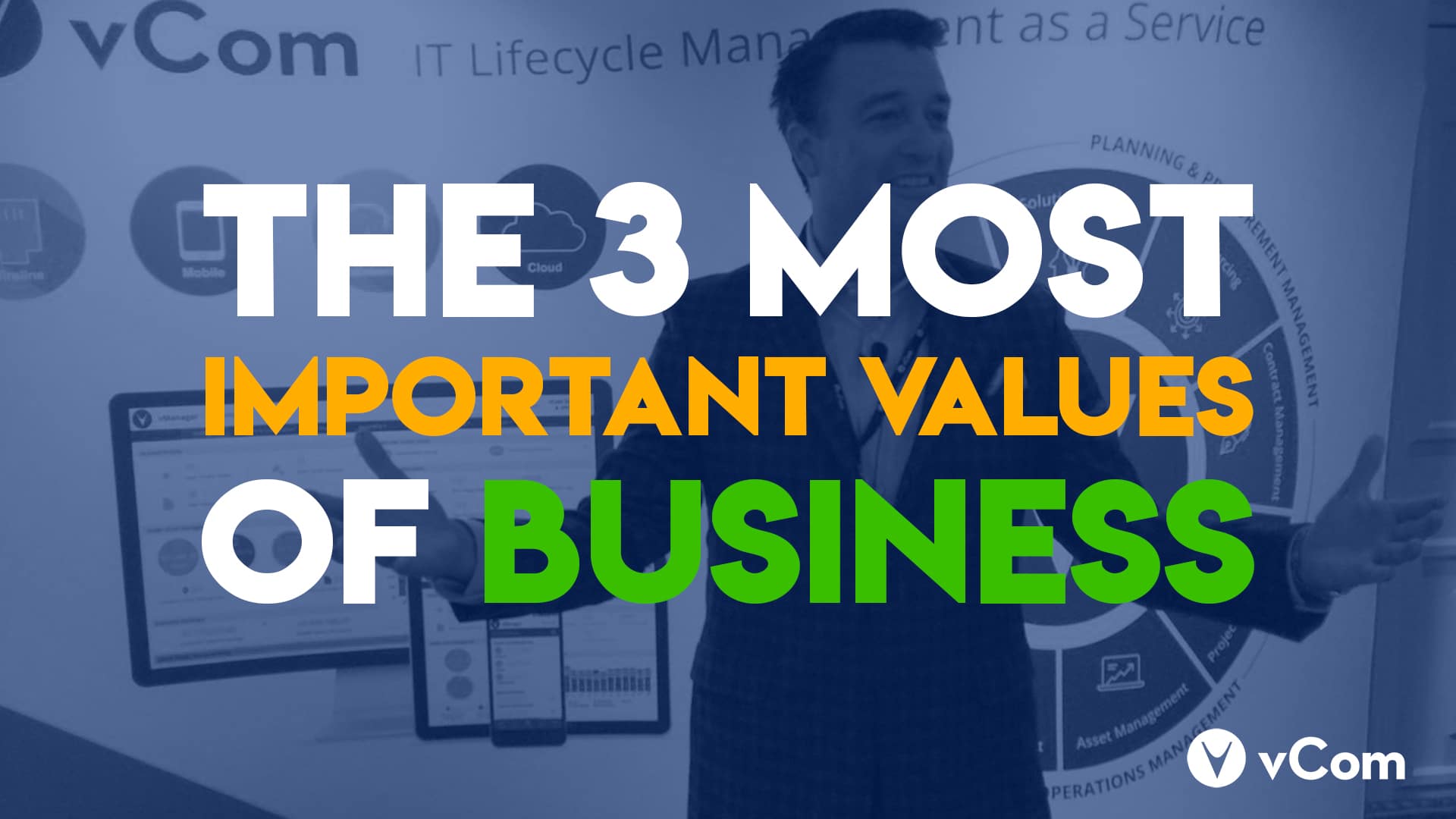Value is measured by much more than bottom line results. Not everything a company does directly results in revenue; instead, it builds a system, culture, and workflow that indirectly (yet strategically) makes it profitable.
In this case, value becomes plural, and you understand which values to invest in because you know the sum of their success will be a healthier, stronger, and more valuable business, overall.
IT not only touches but influences, inspires, and drives the three most important values of any business: time, information, and money.
1. Time
Out of these three values, time is arguably the most precious because it’s the only one that’s truly limited. More money can be made, more information can be gathered, but time is fixed and finite. Since the ability to gather more of it doesn’t exist, you need to become a master at using the time you’re given appropriately, wisely, and efficiently.

Figuring out how to do that isn’t random–it’s intentional and calculated. Business leaders need to look at how their staff is using their time and talents, recognizing where time-cognizant solutions can allow them to focus on things that matter. Many of those solutions can be found with the right IT.
Is someone spending hours (or days!) typing invoice numbers into a spreadsheet when that process can be done in minutes via automated machine learning?
Just how valuable is your time? Are you spending hours handling tactical tasks that could be automated or outsourced so that you can focus on the bigger issues?
Are your teams wasting time tracking down files and figures when a cloud solution could instantly put it at their fingertips?
In each of these instances, the lack of easily accessible IT solutions results in valuable time being spent on busy work rather than strategic initiatives. This goes against the goal of how every business should operate by trying to improve the ratio of time spent to productivity so nearly every action is 1:1 with a beneficial outcome.
2. Information
No one ever intends to make a bad business decision. Some of the most valuable aspects of your business can be traced back to one great decision. Similarly, some aspects of your business that are not performing might very well be traced back to a series of misinformed decisions.
That begs the question: how can you spot the difference in the moment?
More often than not, good decisions spawn from being well-informed. Business leaders accumulate, analyze, and forecast using all of the data and resources available to them, thereby minimizing the risk of their decision.

It’s easy to assume this is a process that can only happen at the highest of levels, where the most resources are available to be the most informed. Not true. It can–and should–happen in the day-to-day at every level of an organization. In the simplest terms, better decisions can be made faster at all levels of an organization when the right information is available:
- A manager can reduce network or mobile costs by monitoring and identifying unused or underutilized products in real-time
- An accountant can instantly pinpoint and fix billing errors in bulk with an automated invoicing system
- Usage patterns can be analyzed and adjustments in network bandwidth made accordingly
In short, vCom Solutions President & CEO Gary Storm sums up the value of information when he says, “we need to give you guys better information so you guys can make better decisions with your business.”
3. Money
While we said value is more than money, financial outcome is still very important and a value in its own right.
IT solutions are becoming more varied, more accessible, and more affordable than ever, which means applying them to your business will instantly improve worker productivity (thanks, value of time!) and increase money-making practices (thanks, value of information!), resulting in long-term savings and profitability. Sounds like a nice equation, right? It’s a self-fulfilling prophecy that requires the boldness to disrupt your status quo by incorporating much-needed, much desired IT solutions.
More affordable IT solutions mean those savings get passed through to you when using these products. vCom’s Buyer’s Club is a great example: wholesale pricing and pre-negotiated terms and conditions on hundreds of services that are among the most cost-efficient options on the market. The added value of time saved in the sourcing process and at the negotiating table are baked right in.
In short, these savings produce additional earnings–earnings that flow right to the bottom line and create shareholder value.
4. Each value is valuable
Depending on your own personality or your role within an organization, one of these values–time, information, and money–might resonate with you more than the other, but be hesitant of making any one of these more important than the next.
On their own, any of these three values can be beneficial to a company, but when acted upon equally, they can snowball into unprecedented success. Despite being three different values, we believe the benefits of time, information, and money come from prioritizing one discipline: managing the IT spend lifecycle.
So the question needs to be asked–how are you handling your IT? Because if time, information, and money are three things you and your business value–then the solutions you need to get the most out of them is in your IT strategy.


